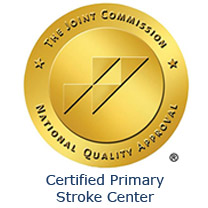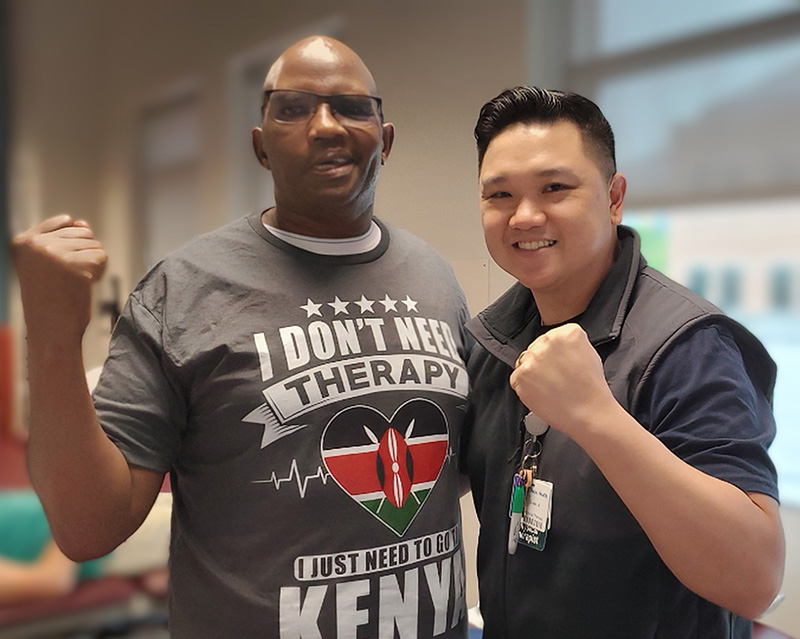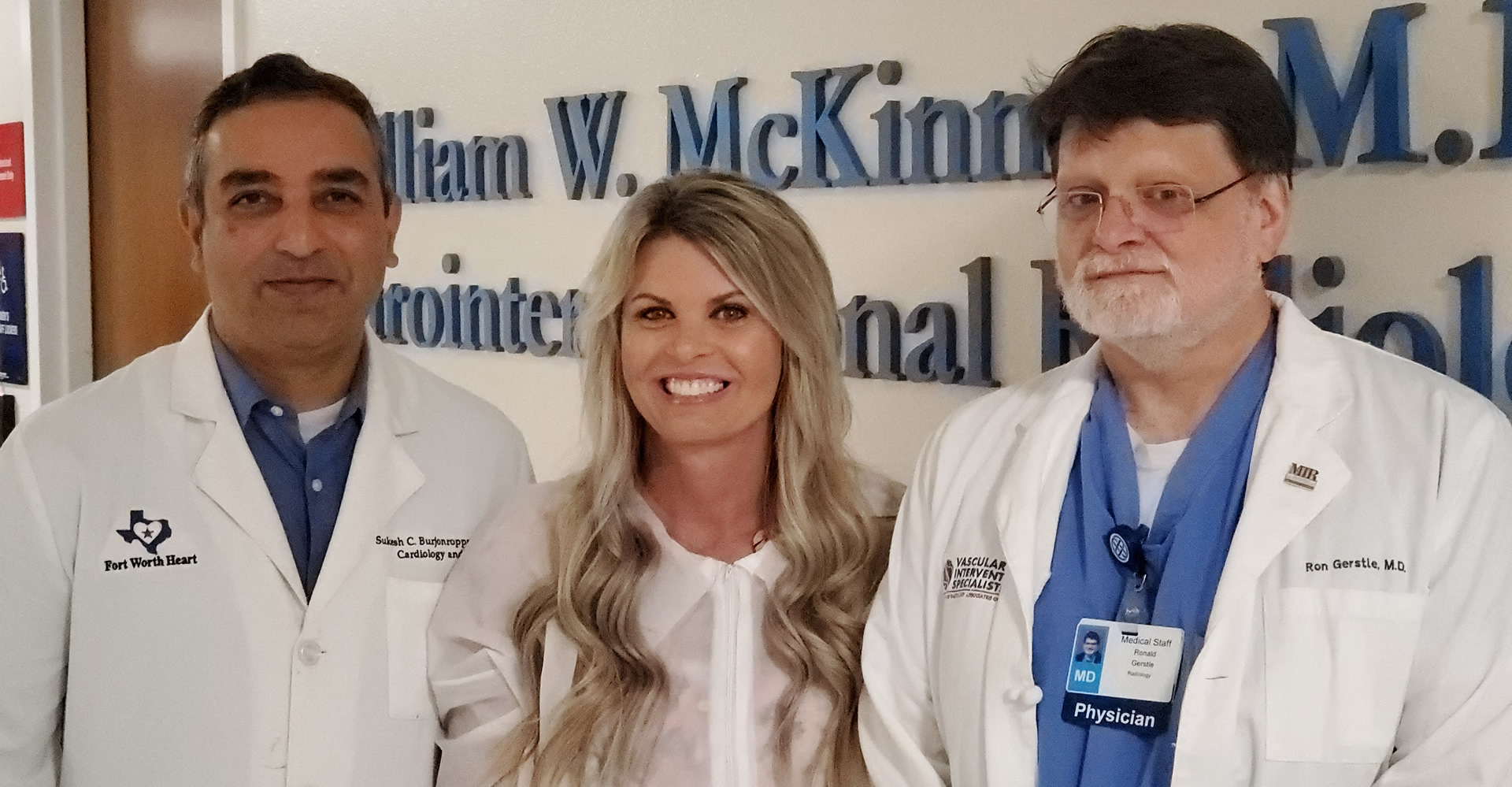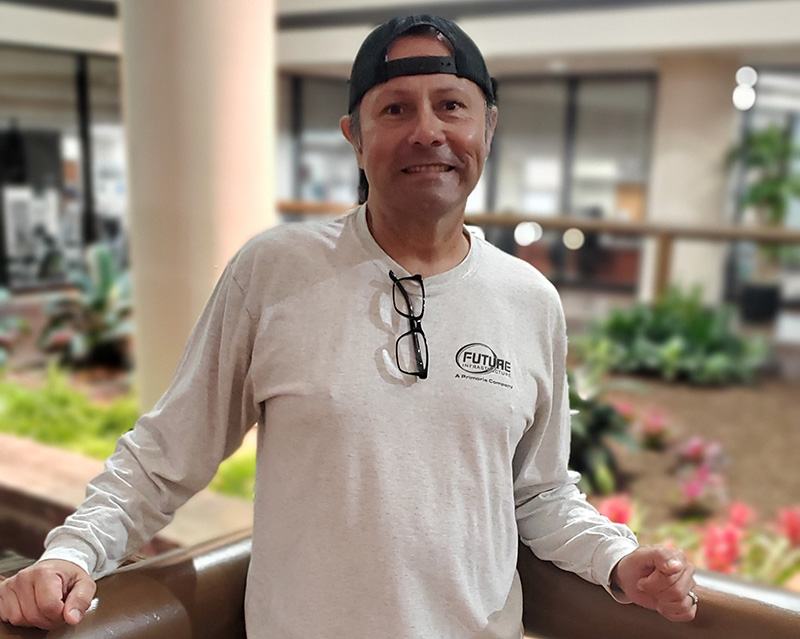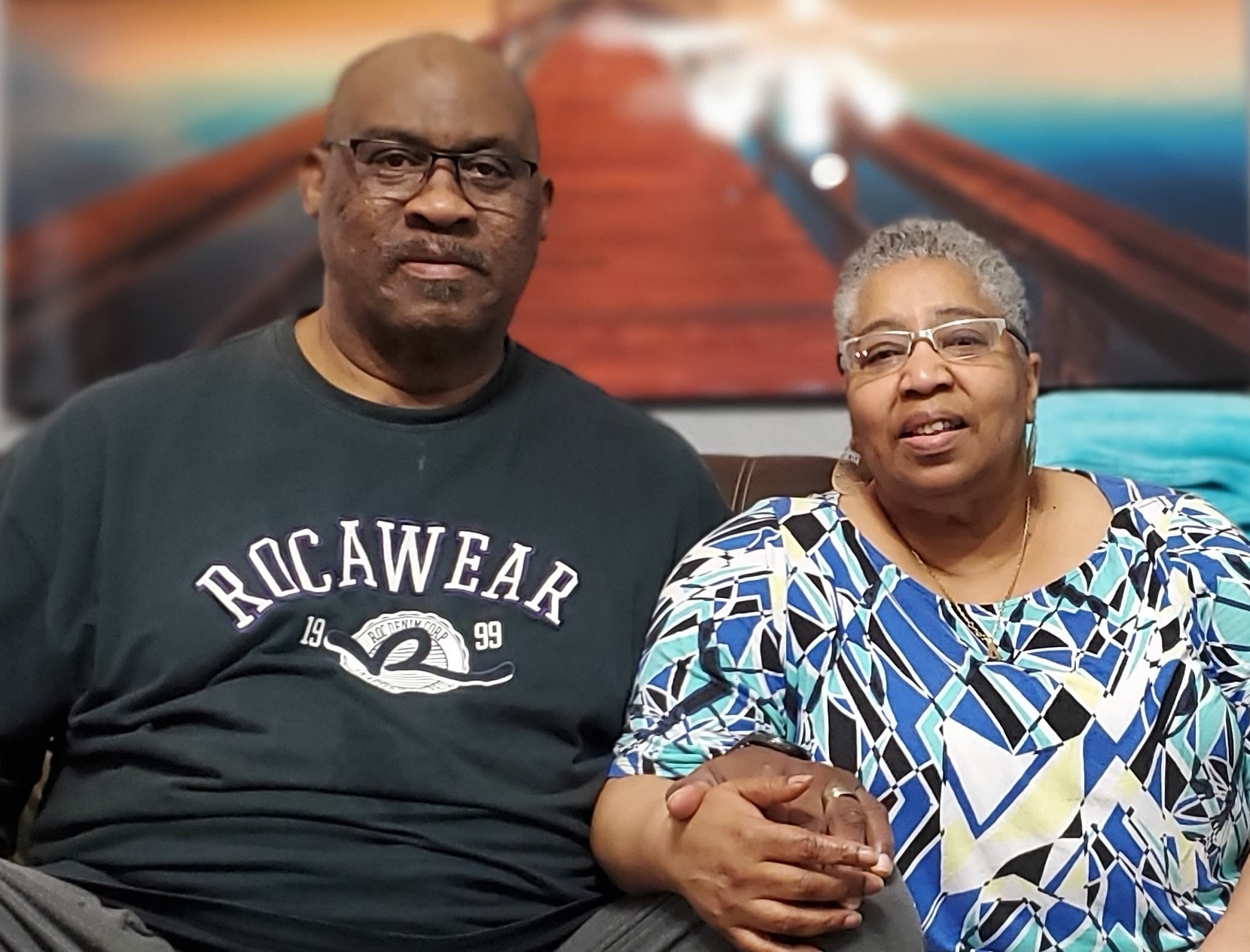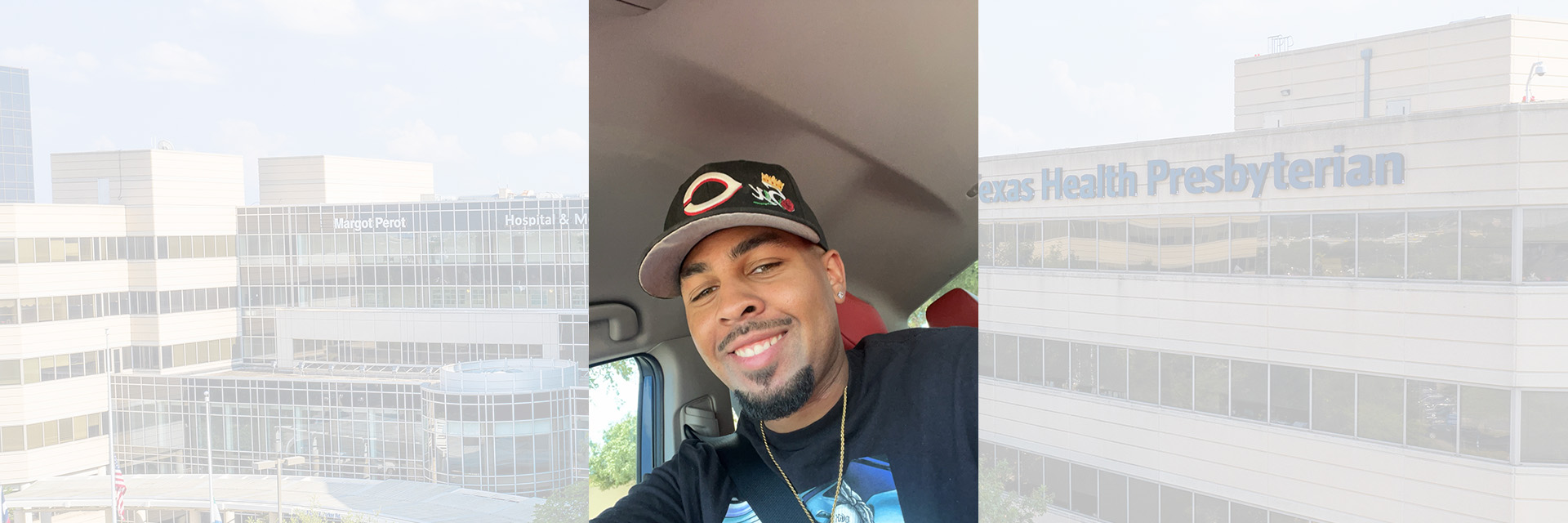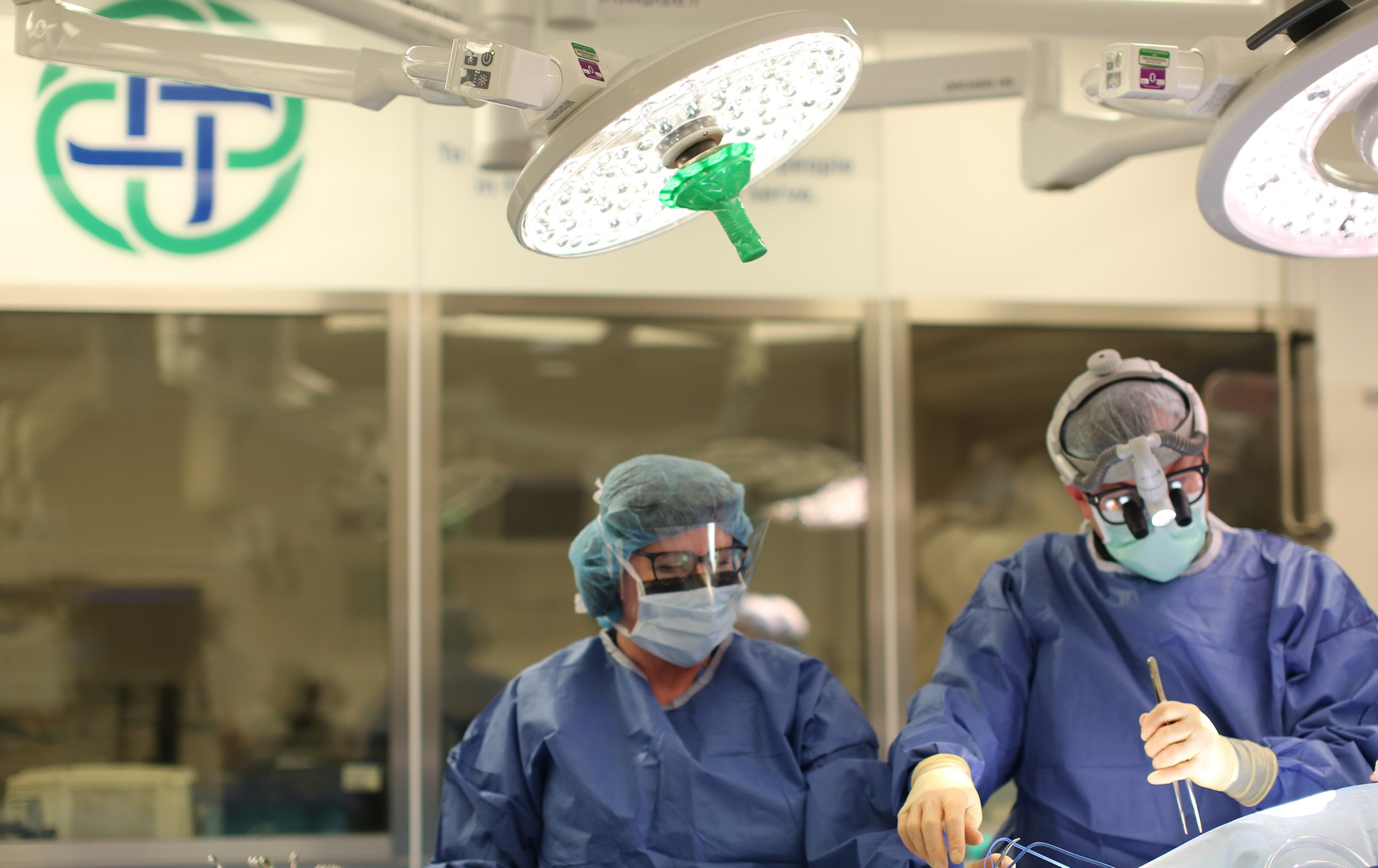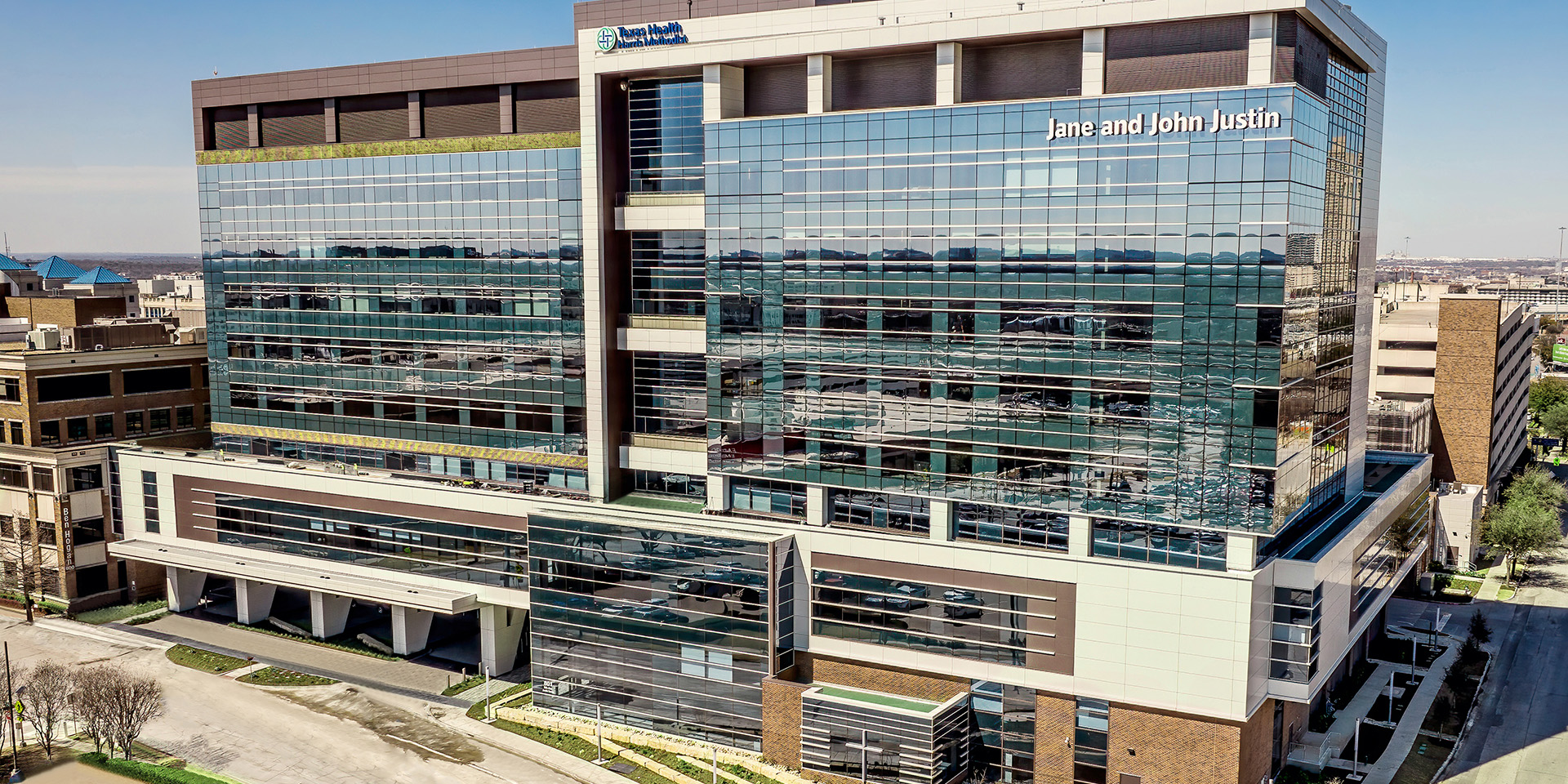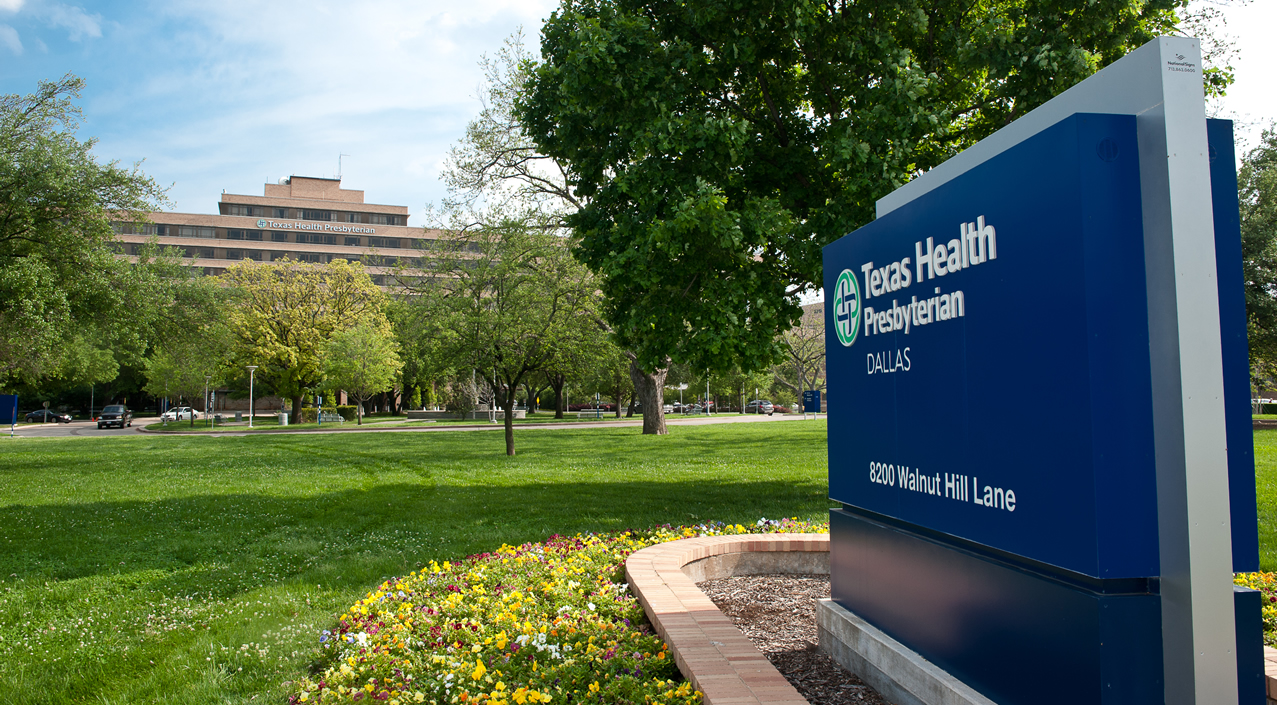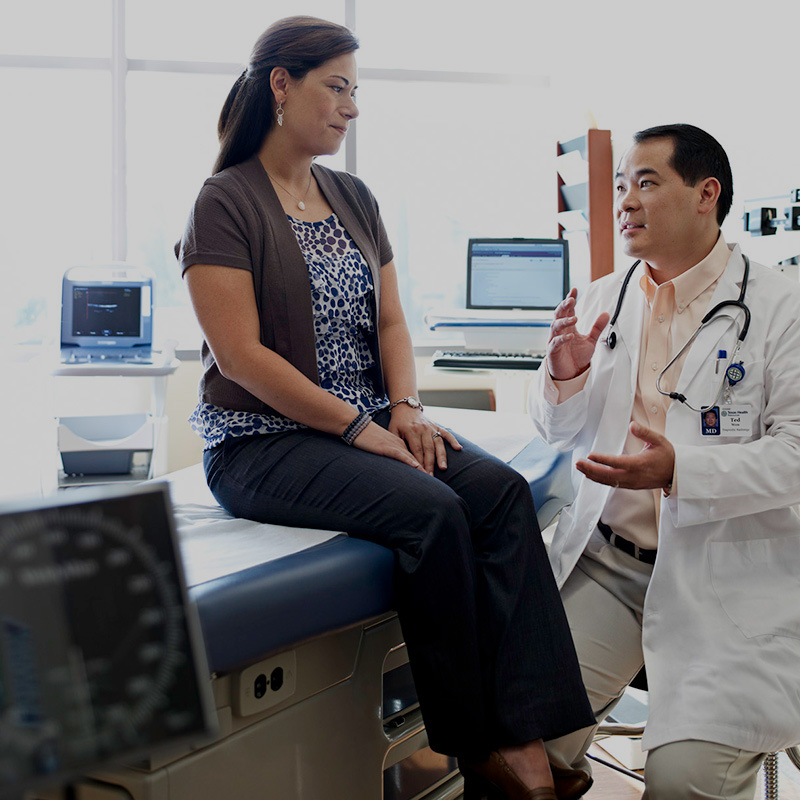

Stroke Warning Signs
B
Balance loss. Person is having trouble balancing or feels dizzy.
E
Eyesight changes. Ask person if they have vision loss, blurry vision, or double vision.
F
Face drooping. Ask the person to smile. Does one side of the face droop?
A
Arm weakness. Ask the person to raise both arms. Does one arm drift downward?
S
Speech difficulty. Ask the person to repeat a simple phrase. Is their speech slurred?
T
Time matters. If you observe any of these signs, call 9-1-1 immediately. Also keep track of the time when symptoms appeared.


-
Texas Health Presbyterian Hospital Dallas
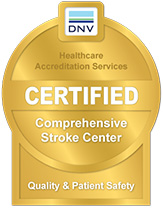 Texas Health Presbyterian Hospital Dallas is dedicated to providing high-quality stroke care earning the Det Norske Veritas (DNV) Comprehensive Stroke Center Certification. The DNV certification is based on rigorous standards outlined by the Brain Attack Coalition and the American Stroke Association, a division of the American Heart Association.
Texas Health Presbyterian Hospital Dallas is dedicated to providing high-quality stroke care earning the Det Norske Veritas (DNV) Comprehensive Stroke Center Certification. The DNV certification is based on rigorous standards outlined by the Brain Attack Coalition and the American Stroke Association, a division of the American Heart Association.The Comprehensive Stroke Program at Texas Health Dallas includes customized educational and support programs and is enhanced by neurovascular physicians on the medical staff and nurses and therapists specifically trained in stroke care. The program is also equipped with advanced automated stroke imaging technology, a neurosurgical intensive care unit and a neurointerventional suite. The specialized technology and care team provide patients with 24-hour access to high-acuity stroke therapies, including IV thrombolysis and endovascular mechanical thrombectomy.
-
Texas Health Harris Methodist Hospital Fort Worth
 When facing a stroke or other serious neurovascular conditions you will find award-winning care at Texas Health Harris Methodist Hospital Fort Worth – a regional destination for high-acuity neuroscience services. Texas Health Fort Worth cares for more stroke patients than any other hospital in North Texas* and is the only Comprehensive Stroke Center in Tarrant County with advanced certification from The Joint Commission – one of only three hospitals in the North Texas Region to achieve this additional level of accreditation.
When facing a stroke or other serious neurovascular conditions you will find award-winning care at Texas Health Harris Methodist Hospital Fort Worth – a regional destination for high-acuity neuroscience services. Texas Health Fort Worth cares for more stroke patients than any other hospital in North Texas* and is the only Comprehensive Stroke Center in Tarrant County with advanced certification from The Joint Commission – one of only three hospitals in the North Texas Region to achieve this additional level of accreditation.Texas Health Fort Worth takes a multidisciplinary approach to stroke care – dedicating resources and technology to stroke intervention. A specialized team of neurocritical care providers, nurses and therapists work together to develop individual care strategies for each patient.
For patients experiencing conditions that impact blood flow to the brain such as stroke, brain aneurysms, and Carotid Artery Disease (CAD), specialty proceduralists on the hospital’s medical staff are skilled both traditional open and minimally invasive techniques to restore healthy blood flow and preserve neurological function.
We are committed to maintaining quality and safety outcomes that exceed national benchmarks. Texas Health Fort Worth is the only facility in Tarrant County to receive the American Heart Association’s Commitment to Quality award for achieving high marks in three or more 2025 Get With The Guidelines clinical areas. View procedural volumes and quality ratings for Texas Health Fort Worth:
*Source: Statistical information provided by the Texas Health Care Information Collection.
-
Texas Health Presbyterian Hospital Plano
 Texas Health Presbyterian Hospital Plano is dedicated to providing high-quality stroke care earning the Det Norske Veritas (DNV) Comprehensive Stroke Center Certification. The DNV certification is based on rigorous standards outlined by the Brain Attack Coalition and the American Stroke Association, a division of the American Heart Association.
Texas Health Presbyterian Hospital Plano is dedicated to providing high-quality stroke care earning the Det Norske Veritas (DNV) Comprehensive Stroke Center Certification. The DNV certification is based on rigorous standards outlined by the Brain Attack Coalition and the American Stroke Association, a division of the American Heart Association.The Comprehensive Stroke Program at Texas Health Plano includes customized educational and support programs and is enhanced by neurovascular physicians on the medical staff and nurses and therapists specifically trained in stroke care. The program is also equipped with advanced automated stroke imaging technology, an intensive care unit and a neurointerventional suite. The specialized technology and care team provide patients with 24-hour access to high-acuity stroke therapies, including IV thrombolysis and endovascular mechanical thrombectomy.
For patients experiencing neurovascular conditions that impact blood flow to the brain, Texas Health Plano offers advanced cerebrovascular care for stroke, aneurysms, and arteriovenous malformations (AVMs). Neurovascular surgeons on the hospital’s medical staff use both traditional open and minimally invasive (endovascular) techniques including endovascular coiling, embolization, and stenting of blood vessels in the brain and neck to restore healthy blood flow and preserve neurological function when facing one of these complex disorders.

-
Stroke and Neurovascular Conditions Treated
We provide care for a wide scope of stroke and neurovascular conditions such as:
- Ischemic stroke
- Transient ischemic attack (TIA-often called a mini-stroke)
- Hemorrhagic stroke
- Aneurysms
- Arteriovenous and vascular malformations
- Cerebral sinovenous thrombosis (venous stroke)
-
Advanced Stroke Imaging
Our stroke centers offer the full range of diagnostic equipment, tests and scans to deliver appropriate care for each patient. Advanced stroke imaging software, like RAPID and Viz.ai, help physicians on the medical staff quickly evaluate the damage caused by a stroke and determine function that can be saved. Imaging technology will quickly analyzes the CT and MRI scans of patients having acute strokes to optimize care decisions. The software is fast and automated which can lead to increased speed-to-decision time - generally less than two minutes for actionable results.
-
Treatments
The physicians on the medical staff recommend treatments that can include clot-busting drugs, procedures like thrombectomy, and other treatments depending on the patient and the time they had a stroke.
Based on the type of stroke you have, you may receive:
- Intravenous thrombolytic - clot busting medication
- Thrombectomy
- Neurointerventional or Minimally Invasive embolization of aneurysms and vascular malformations
- Neurosurgical interventions, elective and emergent for treatment of any neurovascular condition
- Intracranial aneurysms — clipping and coiling
- Tumor embolization
- Carotid artery angioplasty and stenting
-
Research
Researchers at Texas Health are dedicated to studying stroke, its risk factors and stroke care. Participants often include our patients as well as others who are at risk or have had a stroke.
START — Optimal Delay Time to Initiate Anticoagulation after Ischemic Stroke in Atrial Fibrillation. Prospective study to look at the right time to begin medications that will prevent blood clots in those with an irregular heart rhythm. This study focuses on patients with a stroke caused by a blood clot.
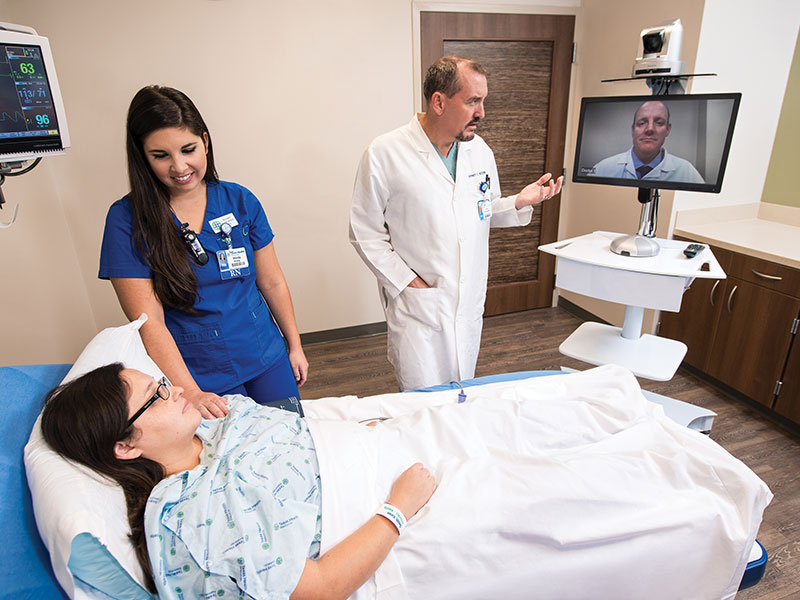
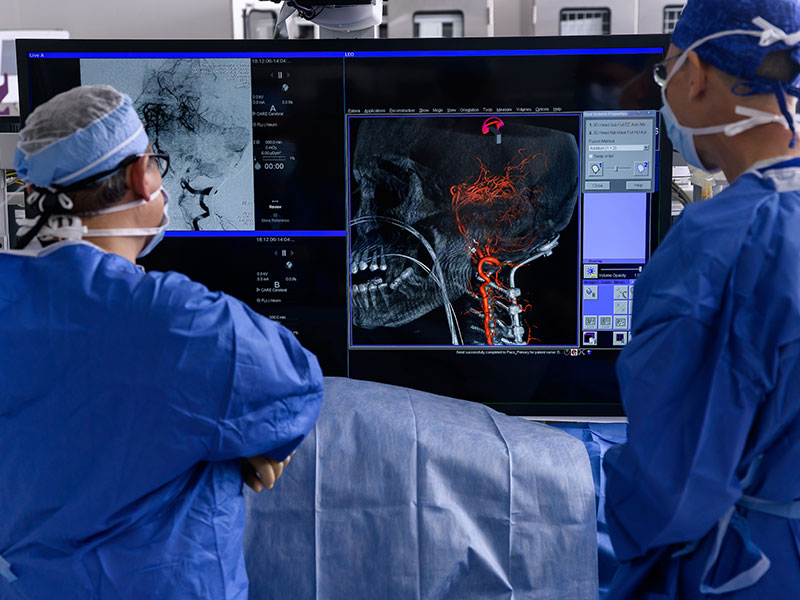
-
Rehabilitation
Stroke is considered a brain injury, and rehabilitation focuses on recovery from day one. Therapists at Texas Health facilities work closely with each patient to develop a personalized rehabilitation plan. The stroke centers also include access to support groups, education and prevention programs.
Our programs share rehabilitation and recovery resources, available in inpatient and outpatient settings, to help you get back to living your life.
-
Support Groups
The Journey (Dallas) — In-Person and Virtual
The Journey stroke support group is open to anyone who has been impacted by stroke including survivors, caregivers, family members, and friends. The support group is offered in a hybrid format via Zoom and in-person at UT Southwestern Medical Center.
Date/Time:
Fourth Thursday of every month at 4:00 p.m. Virtual attendees will be emailed a link to join. Please see directions below if joining in-person:Location:
Cancer Care Outpatient Building – Room NM 02.966
6202 Harry Hines
Dallas TX 75390(Directly across the street from William P. Clements Jr. University Hospital)
Parking/Wayfinding:
Room NM 02.966 – Down the first hallway after the Gift Shop if entering the building from the parking garage. Lot parking will be validated (but not valet).Email to Register: Audra.Rabroker@UTSouthwestern.edu
Stroke Survivors and Caregivers (Fort Worth) — In-Person and Virtual
Join us on the first Wednesday of every month, either in-person or virtually, to discuss common issues patients and families experience after a stroke. The support group is facilitated by a stroke nurse at Texas Health and includes guest speakers followed by group discussion.
Date/Time:
First Wednesday of every month from 3:00 to 4:30 p.m. Virtual attendees will be emailed a link to join. Please see directions below if joining in-person:Location:
Texas Rehabilitation Hospital - Cafeteria
425 Alabama Ave
Fort Worth, TX 76104


